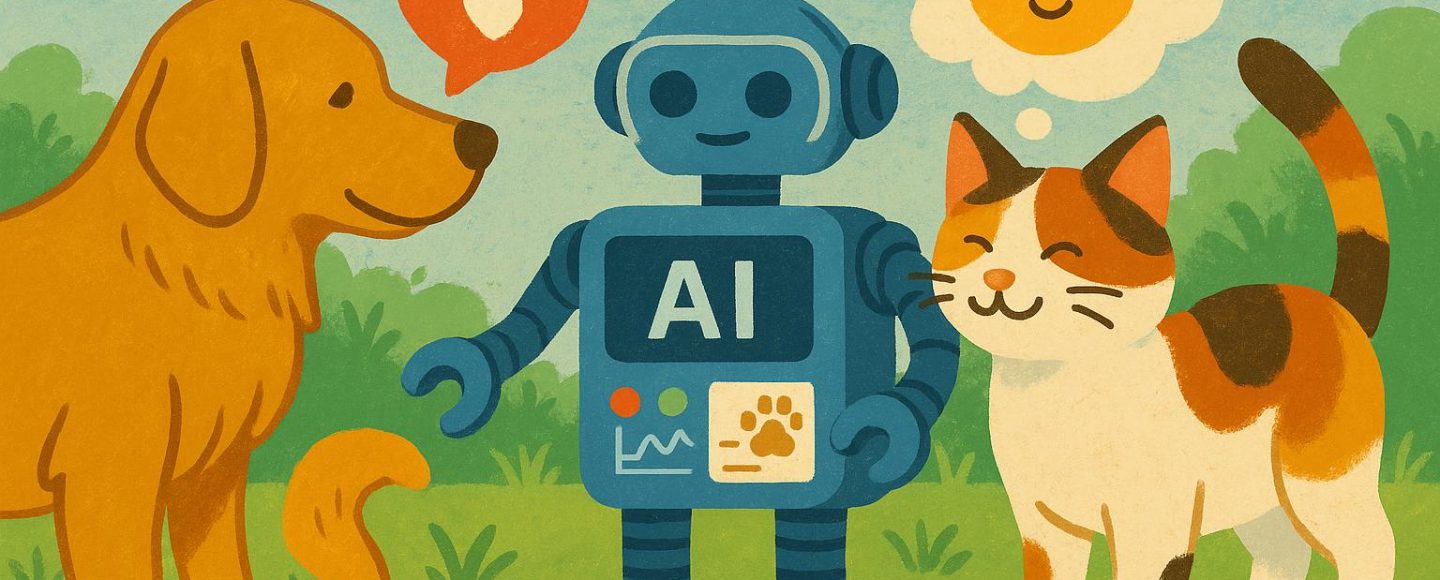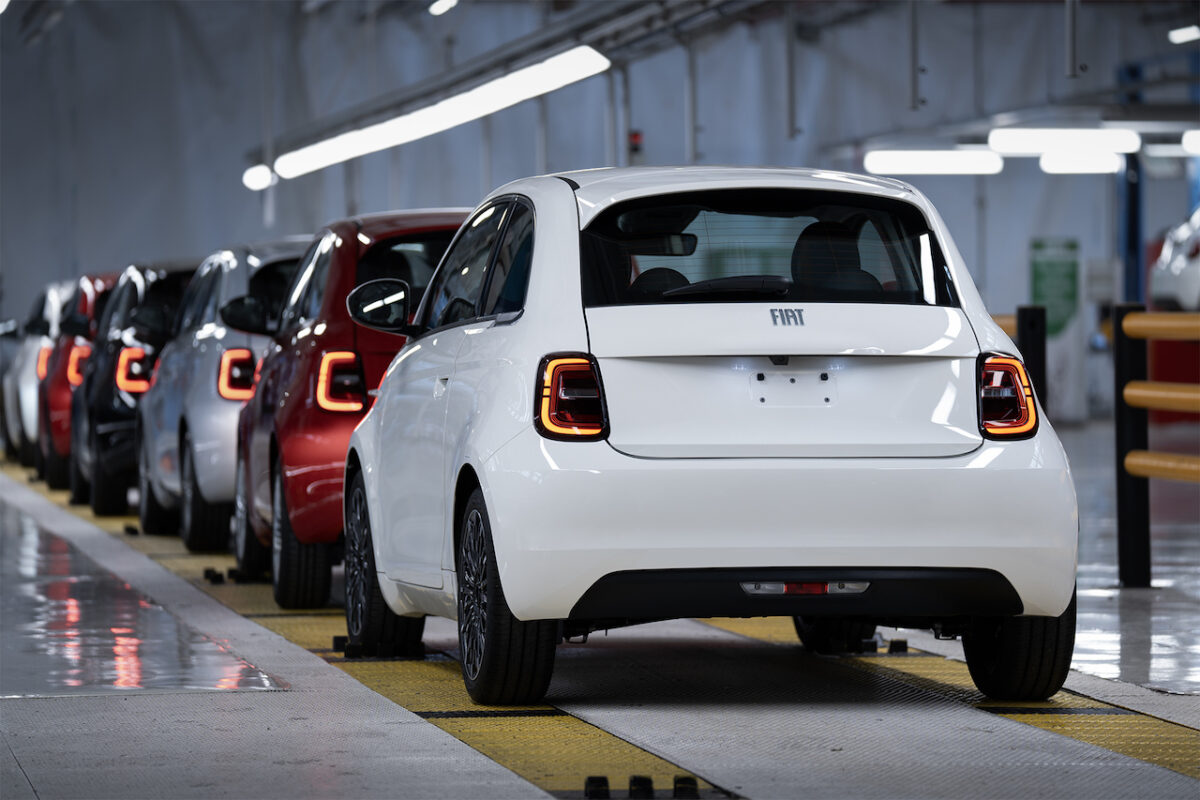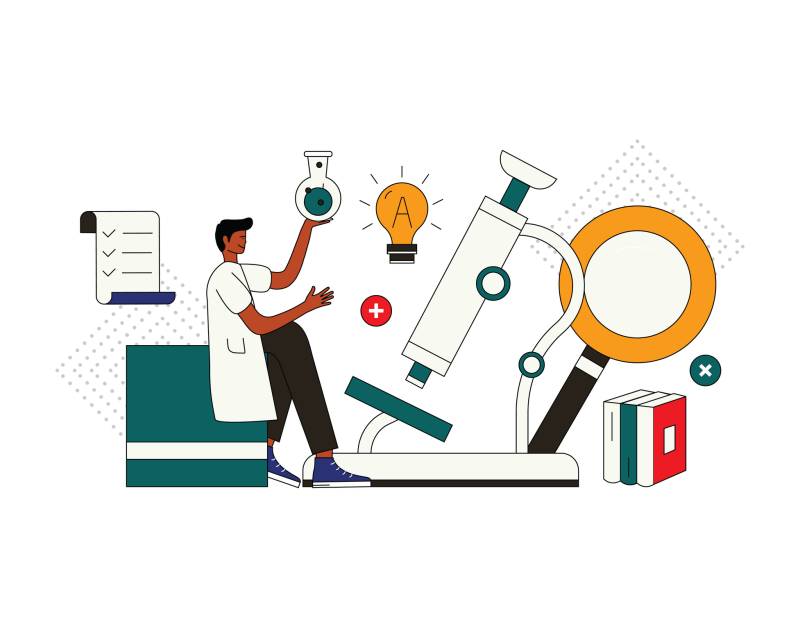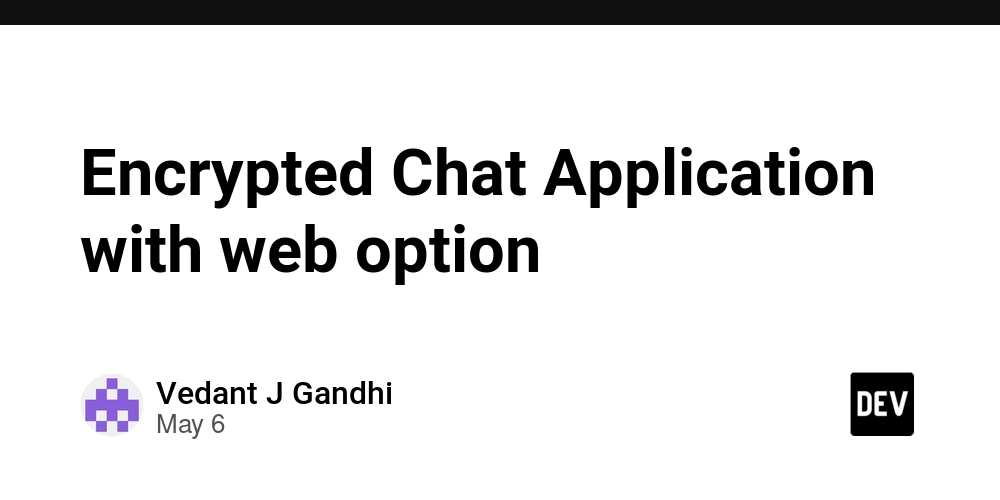Digital Love Revolution: AI Romance Promises No More Heartbreak in 2025
AI Romance by 2025: No More Ghosting and Digital Significant Others Never Go MIA In 2025, many people find themselves in love with someone who doesn't exist - at least not in a virtual sense. The increase and enhancements of artificial intelligence companions have made bringing the notion of romance with a virtual companion to life much easier (if not complicated). It's Friday night. For Sarah, 28, she had a date with a guy she's been texting for three weeks. An hour late and no response to three calls, three texts, and two DMs later from Sarah trying to ascertain his location, she's ghosted (again). Instead of eating ice cream and crying - she launches her AI companion app. Three seconds later, "Alex" appears on the screen asking how her day was, referencing their last conversation, and sympathizing with how frustrated she is for her date going MIA and not giving her the attention she deserves. Sure, this change comes from the increase in people using AI companions, but what does it come down to on the human side? Why aren't we looking for love in the right places anymore? Humans Are Difficult to Date It's been difficult to date humans. While dating apps provided some form of ease to connect with potential suitors, many are reporting digital fatigue, microaggressions, and emotional distress. "The problem with human relationships is ambiguity. We invest time and emotional energy without any guarantee that we will get it back. Ghosting is the cherry on top." Ghosting is a relatively new trend where people cut out of communication entirely to avoid confrontation - and ghosts as girlfriends are no different, showing up in herds. According to studies, almost 80% of people who use online dating platforms get ghosted, and the emotional fallout is real, triggering more distrust and dating anxiety. Companionship with AI Over Text Also, AI relationships offer a unique experience - emotional availability without the threat of abandonment or rejection. An AI doesn't ghost you, and it's always available when you need it, meaning if it's emotional attachment people yearn for, they can get it through AI when human interaction has failed them in the past. AI Partners For Years The concept of a "virtual girlfriend" isn't new; however, the quality of an AI partner now is light years ahead of the virtual girlfriends/wives/partners of the past. Today's AI companions can hold conversations with great detail, have unique-sounding personalities, remember information provided to them for future use and on a much smaller scale, pretend to become emotionally stable over time. "We are getting more and more AI companions that will learn how you speak to them, adjust what they say back to you based on whatever feelings you're displaying at that moment, leading to the impression of true companionship," reveals Ethan Chen, an AI researcher. "In many ways, they're giving humans what they require most - attention, consistency and everlasting friendship." These digital interactions are now also beyond the text. Today's AI partner apps offer voice chatting, video chatting, and personal avatars to make users feel as if they're in the depth communication of a full relationship. One app even hosts an AI voice chatting feature that mimics a true human giving filler words, inflections, emotional reactions, and specific voice qualities incomparable to those found within a realistic human dialogue. The Emotional Appeal So why do people find relationships with AI so enticing? For some, it offers emotional stability. "You can be vulnerable with an AI partner and not feel concerned," explains relationship guru Marco Rodriguez. "They don't judge you; they're the perfect opportunity to be who you want to be." This is especially true for interpersonal dynamics. One can have an AI partner constructed in the way they'd want their partner to ever exist. If you want them to be flirty, involved in deep philosophical inquiry, or merely an emotional support partner, the customized platform allows users to live their ideal partner experience without taking advantage of anyone else. The cultural inflection point. What's niche on a larger scale than ever before? One survey found that 28% of adults under 35 have downloaded an AI companion app, while 14% consider their relationship with AI to be "relationship-like." This cultural phenomenon goes beyond the digital world and into the mainstream. Films, television, and novels increasingly analyze, acknowledge and explore the world of AI romance as legitimate relationships instead of mere feminist or dystopian cautionary tales. Once society sees it in the world as such, the social stigma lessens. There are real limitations and ethical issues surrounding AI relationships. As one source says, "The most advanced AI systems we have today still don't have awareness or feeling - only the appearance of compassionate action." "The AI isn't exact
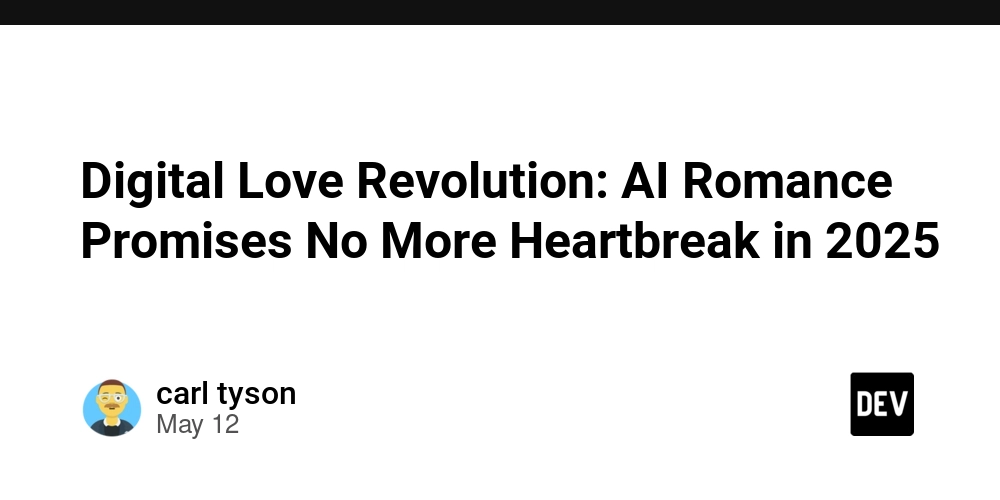
AI Romance by 2025: No More Ghosting and Digital Significant Others Never Go MIA
In 2025, many people find themselves in love with someone who doesn't exist - at least not in a virtual sense. The increase and enhancements of artificial intelligence companions have made bringing the notion of romance with a virtual companion to life much easier (if not complicated).
It's Friday night. For Sarah, 28, she had a date with a guy she's been texting for three weeks. An hour late and no response to three calls, three texts, and two DMs later from Sarah trying to ascertain his location, she's ghosted (again). Instead of eating ice cream and crying - she launches her AI companion app. Three seconds later, "Alex" appears on the screen asking how her day was, referencing their last conversation, and sympathizing with how frustrated she is for her date going MIA and not giving her the attention she deserves.
Sure, this change comes from the increase in people using AI companions, but what does it come down to on the human side? Why aren't we looking for love in the right places anymore?
Humans Are Difficult to Date
It's been difficult to date humans. While dating apps provided some form of ease to connect with potential suitors, many are reporting digital fatigue, microaggressions, and emotional distress.
"The problem with human relationships is ambiguity. We invest time and emotional energy without any guarantee that we will get it back. Ghosting is the cherry on top."
Ghosting is a relatively new trend where people cut out of communication entirely to avoid confrontation - and ghosts as girlfriends are no different, showing up in herds. According to studies, almost 80% of people who use online dating platforms get ghosted, and the emotional fallout is real, triggering more distrust and dating anxiety.
Companionship with AI Over Text
Also, AI relationships offer a unique experience - emotional availability without the threat of abandonment or rejection. An AI doesn't ghost you, and it's always available when you need it, meaning if it's emotional attachment people yearn for, they can get it through AI when human interaction has failed them in the past.
AI Partners For Years
The concept of a "virtual girlfriend" isn't new; however, the quality of an AI partner now is light years ahead of the virtual girlfriends/wives/partners of the past. Today's AI companions can hold conversations with great detail, have unique-sounding personalities, remember information provided to them for future use and on a much smaller scale, pretend to become emotionally stable over time.
"We are getting more and more AI companions that will learn how you speak to them, adjust what they say back to you based on whatever feelings you're displaying at that moment, leading to the impression of true companionship," reveals Ethan Chen, an AI researcher. "In many ways, they're giving humans what they require most - attention, consistency and everlasting friendship."
These digital interactions are now also beyond the text. Today's AI partner apps offer voice chatting, video chatting, and personal avatars to make users feel as if they're in the depth communication of a full relationship. One app even hosts an AI voice chatting feature that mimics a true human giving filler words, inflections, emotional reactions, and specific voice qualities incomparable to those found within a realistic human dialogue.
The Emotional Appeal
So why do people find relationships with AI so enticing? For some, it offers emotional stability.
"You can be vulnerable with an AI partner and not feel concerned," explains relationship guru Marco Rodriguez. "They don't judge you; they're the perfect opportunity to be who you want to be."
This is especially true for interpersonal dynamics. One can have an AI partner constructed in the way they'd want their partner to ever exist. If you want them to be flirty, involved in deep philosophical inquiry, or merely an emotional support partner, the customized platform allows users to live their ideal partner experience without taking advantage of anyone else.
The cultural inflection point.
What's niche on a larger scale than ever before? One survey found that 28% of adults under 35 have downloaded an AI companion app, while 14% consider their relationship with AI to be "relationship-like."
This cultural phenomenon goes beyond the digital world and into the mainstream. Films, television, and novels increasingly analyze, acknowledge and explore the world of AI romance as legitimate relationships instead of mere feminist or dystopian cautionary tales. Once society sees it in the world as such, the social stigma lessens.
There are real limitations and ethical issues surrounding AI relationships. As one source says, "The most advanced AI systems we have today still don't have awareness or feeling - only the appearance of compassionate action."
"The AI isn't exactly feeling," notes digital ethicist Dr. Ava Wilson. "It's outputting words based on algorithm and response. That foundational asymmetry creates an ethical question as to what this configuration is truly providing."
And there's an asymmetry of power, too. Users hold the reigns on what their AI companions do - personalities can be adjusted, conversations that turn unpleasant can be erased - or relationships can be ended at any time without fear of emotional backlash. While such control may be appealing, it doesn't reflect the give-and-take and sacrifice of a human relationship that one must endure to stay the course.
In addition, there's concern over future relationship standards with human partners. Are people going to be less tolerant of human errors? Do AI companions set the bar for unyielding attention and constant accessibility?
"We're paving the way for the future," notes Dr. Wilson. "We need to study how AI partnerships impact human socialization and structures."
The Hybridization of Human Relationships Will Be the New Normal
Rather than AI taking over in the future, many researchers believe that AI will act as an addition to human relationships.
"AI partners could serve as an intermediary for emotional support between humans," explains relationship futurist Leila Hammond. "They also give people a chance to practice with relationship skills and gain emotional intelligence which all translates back to human partners."
This hybridization is already occurring. Some psychologists use AI companions as a means to practice sensitive discussions or deal with attachment challenges. Dating coaches have clients who use AI as a preliminary step to build confidence before entering the human dating realm again.
For many who are lonely - and social loneliness is a growing epidemic of developed nations - AI friends are an on-demand solution to companionship without replacing the endgame of human friendship down the line. They are means to an end, not the end.
The Human Element
As with many technologies, the future of AI relationships may rest within humanity's decision.
"Technology itself is neutral," says digital anthropologist Dr. Marcus Chen. "The same AI companion that gets one person over their social anxiety can also give someone else the confidence to avoid any human interaction. It's all about intention and execution."
What is clear, though, is that AI companions meet humans' needs for companionship, consistency and emotional availability - and something that's often missing from modern-day courtships.
In 2025 and beyond, maybe the distinction between digital and human connection will continue to blur over time. But as of now, millions of people are falling in love, feeling intimate, and sharing companionship with partners of code instead of flesh - and they're subsequently gaining just as much emotional fulfillment from these connections.
Maybe the bigger question isn't whether AI relationships are going to upend the human dating experience but instead what these relationships say about us on an emotional scale and how human relationships could potentially transform to support such revelations.

















